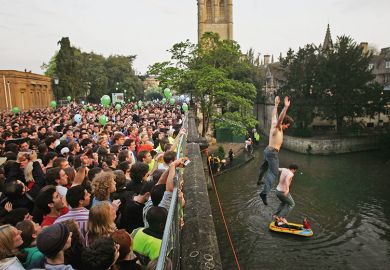Controversial plans to create a Stephen Hawking professorship at the University of Cambridge have been passed, despite concerns over the salary that will be paid.
Members of Cambridge’s governing Regent House voted in favour of accepting a $6 million (£3.63 million) donation to fund the post by 746 votes to 606, the university announced on 25 February.
It means the Stephen W. Hawking professorship of cosmology will be established on 1 March thanks to the gift from the Avery-Tsui Foundation, set up by the late US philanthropist Dennis Avery, who was a personal friend of Professor Hawking and the heir to a family fortune made in peel-off labels.
However, the relatively close ballot reflects the considerable opposition to the new chair, whom critics say is likely to be paid about double the amount paid to other Cambridge professors, equating to a salary of £140,000 a year.
Opponents had claimed the terms of the Avery-Tsui Foundation donation, which provides about $4 million for an additional salary supplement of £67,000 on top of the basic $2 million endowment, posed a “threat to meritocracy” and would set a precedent for donors to demand “special arrangements” in return for their money.
Gill Evans, emeritus professor in medieval theology at Cambridge, said donors will now be able to press for special deals regardless of the university’s stated policies.
“It could lead to all sorts of problems and future votes,” she said, adding that whoever got the post “may be in for a rough time from resentful colleagues” wanting to know “why they are worth so much more than anyone else”.
Under the terms of the donation, the salary of the incoming chair must be “equal to or greater than the average salary and benefits” for other professors “of similar years of service, or rank” in the department of applied mathematics and theoretical physics.
A spokesman for Cambridge said the chair would now be established as it had been approved by the Regent House.




